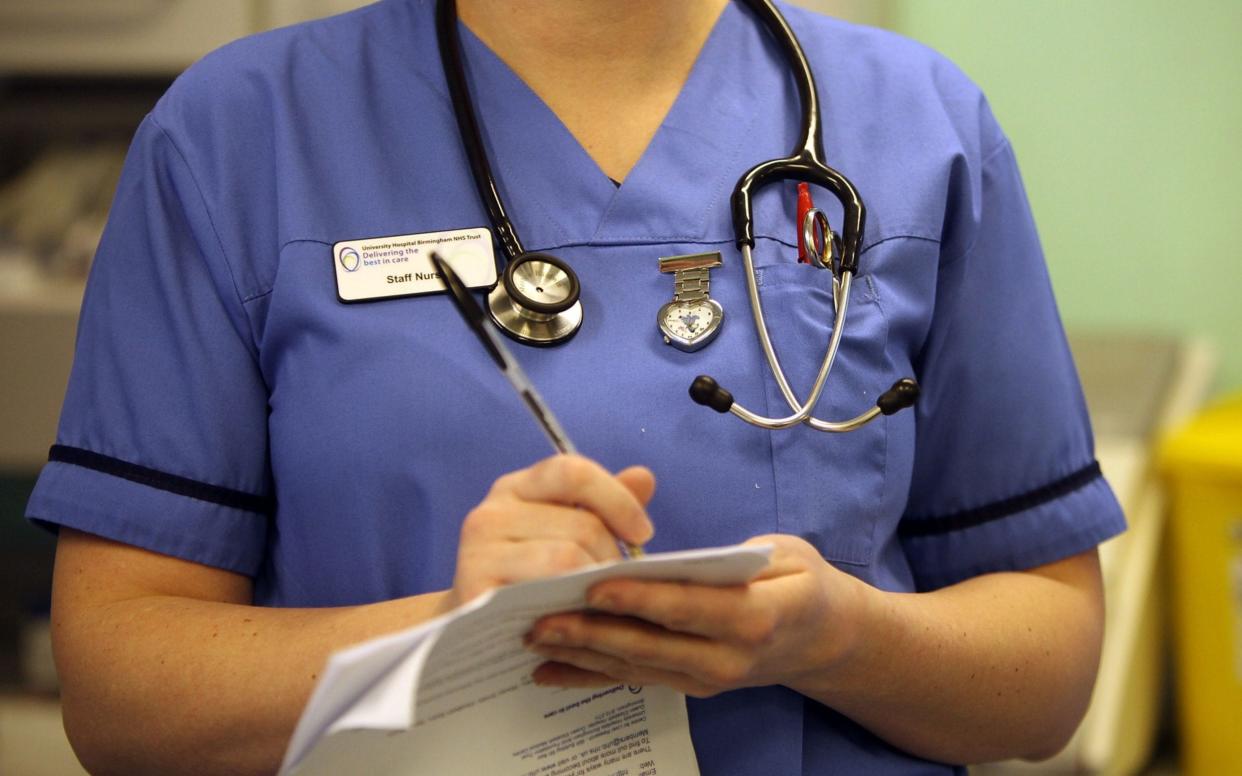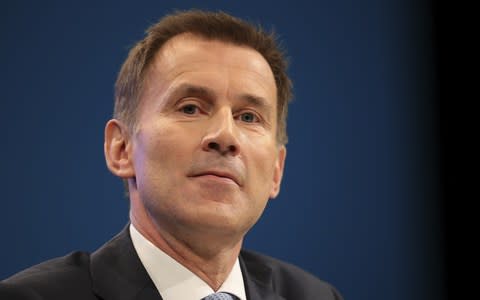Automatic pay rises ditched in £4.2 billion NHS deal

Automatic pay rises for nurses, midwives and paramedics will be replaced by performance-related increases as part of a £4.2 billion deal announced for NHS staff.
Jeremy Hunt said yesterday the pay increase, which marks the end of a seven-year cap, was “well deserved” but would be a “something for something deal” that brings with it greater productivity and a crackdown on staff sickness.
More than a million NHS staff who are not doctors will receive rises of between 6.5 and 29 per cent under the proposed new arrangements.
Workforce leaders said the three-year package, which could take effect as early as July, may turn the tide of the “daunting” current staffing crisis.
It follows what the Health Secretary and Social Care described in Parliament as “one of the most difficult winters in living memory” for the NHS.
Rarely has a pay rise been so well deserved for NHS staff who have never worked harder
Jeremy Hunt
The health service currently has vacancies for 42,000 nurses, midwives and therapists.
Under the terms of the new deal, which trade unions will recommend to their members, a newly-qualified nurse would start on a salary of £24,907, rising to £30,316 by the end of their third year in the job.
Only the GMB is recommending staff reject the terms.
Roughly half of the more than one million staff affected will be eligible for the 6.5 per cent pay rise, while the rest can expect an increase of anything between than and 29 per cent.
Around 1 per cent of the workforce, including many paramedics, will be entitled to the very highest increase.
However, Mr Hunt said increases under the new regime would be more closely linked to individual performance.
He pledged to put “appraisal and personal development at the heart of pay progression, with often automatic incremental pay replaced by larger less frequent pay increases, based on the achievement of agreed professional milestones”.
Within hours of Mr Hunt’s announcement the British Medical Association, which represents doctors, said a new pay offer for its members was “long overdue”.

The agreement also comes with a commitment to crack down on the high levels of staff sickness in the NHS, currently around 4.5 per cent.
Mr Hunt said that even reducing this by one per cent would save £280 million.
Under the deal, hospital caterers, cleaners, porters and other staff on the lowest pay grade would get an immediate pay rise of more than £2,000 this year - an increase of between 11 per cent and 13 per cent.
This would mean that, from April 1, every NHS worker in England would be paid at least £8.93 an hour, which is 18p above the voluntary living wage of £8.75.
This would take the lowest full-time rate of pay in the NHS to £17,460.
Under the proposals, band one would be scrapped by April 2021 and all staff moved to the next pay scale.
The lowest salary in the NHS would then be £18,005.
Over the three years, more than 100,000 of the lowest-paid health workers would be in line for wage increases of between 15 per cent (£2,300) and 17 per cent (£2,600).
The increases will be financed by new money from the Treasury and not taken form elsewhere in the health budget, said Mr Hunt.
Unison's Sara Gorton added: "The agreement means an end at last to the Government's self-defeating and unfair 1 per cent pay cap.
"It won't solve every problem in the NHS, but would go a long way towards making dedicated health staff feel more valued, lift flagging morale, and help turn the tide on employers' staffing problems.

 Yahoo News
Yahoo News 
